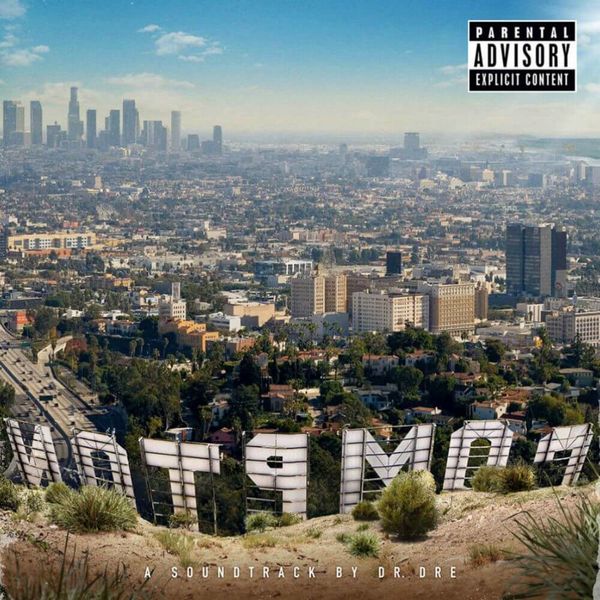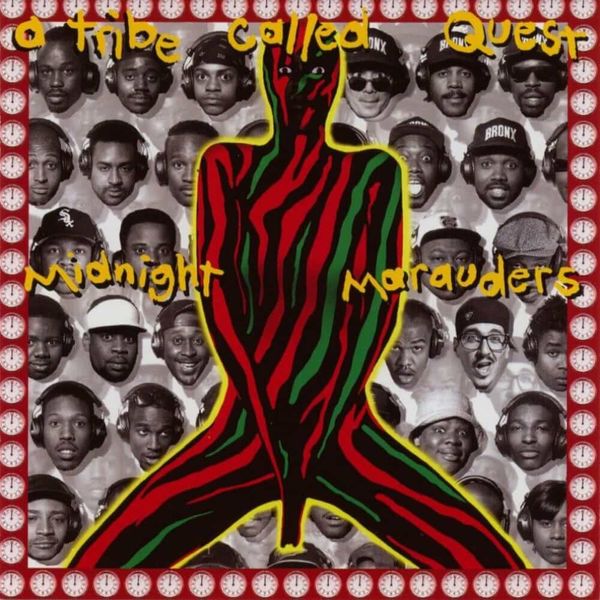André
Straight Outta Compton, the acclaimed and influential debut by N.W.A, is a seriously good hip-hop album. Celebrating its 30th anniversary, the record still sounds tremendously exciting, and strikingly defiant. Gangsta rap doesn’t come much purer than this, and it remains an essential listen for hip-hop heads old or new. That said, I’m not so sure it’s one of the greatest.
The opening portion is fantastic — some of the finest hip-hop tunes you’ll ever hear — but the record fades during its second half. Straight Outta Compton features three ‘remixes,’ and they’re easily the most disposable cuts on the whole tracklist. I presumably speak as a spoilt modern listener, but scrapping these three tracks surely makes it a smoother, more consistent experience, in addition to reducing the album length to less than an hour long. I find myself longing for the conclusion of Straight Outta Compton, which is a damn shame given the quality of the album’s opening four or five tracks. In comparison to the likes of Illmatic, To Pimp a Butterfly, and The Marshall Mathers LP, this is where N.W.A’s classic falls short.
However, perhaps these are unfair comparisons. This is a posse after all, not just a lone MC, and the atmosphere of Straight Outta Compton is notably disparate. There is an undercurrent of a party vibe, similar to that of Hello Nasty, and the implications of rebellion only add to that sensation. The chemistry between Ice Cube, Eazy-E, and MC Ren is unparalleled: the way they bounce off each other has been a clear influence on the likes of Run the Jewels for example. Whether they’re channelling aggression as an act of social defiance, or simply spitting wacky rhymes about their competitors, the interaction between the group is thoroughly engrossing. Ice Cube feels like the main force, particularly on the sublime trio of tracks that open the album, but it never feels like anyone is letting the side down. It’s always a pleasure to hear Dr. Dre drop in every once and while, particularly on “Express Yourself”, which is wonderfully joyous in its message.
While that song in particular is something of a black sheep in its optimism and carefree spirit, it is of course “Fuck Tha Police” that epitomises the real essence of Straight Outta Compton: a song inspired by a deadly serious subject matter, yet performed and produced in a way that makes it extraordinarily accessible. The impact of this song, this album, and this impassioned hip-hop assembly, cannot be overstated. Better rap albums have been released since its conception in 1988, but very few have caused quite the same stir.
8 out of 10
Fred
Straight Outta Compton is an easy album to take for granted. Its formula is so ingrained in music consciousness now that it’s odd to think there was a ‘before.’ Skits, samples, obstinance, and anger are the linchpins of many great hip hop albums, but few showcase their chemistry as explosively as N.W.A. did in 1988. The ‘reality rap’ of their debut shone a light on a world much of America hadn’t seen, and did so in a way that impacted everything that followed. The success of today’s hip hop superstars, from Kendrick Lamar to Eminem, is built on foundations laid by N.W.A.
The openers — “Straight Outta Compton”, “Fuck tha Police”, and “Gangsta Gangsta” — are what the album is rightly remembered for. They are as striking a trio as you’re ever likely to hear, and the flows of Ice Cube, MC Ren, and Eazy-E bounce off of each other beautifully. The faux-ragtag collaboration throughout is irresistable. Even the conventions of the album format weren’t safe. The producers dropping in for a couple of verses and bossing it? Why not? Dr. Dre and DJ Yella provided the perfect backdrop for the album’s social satire. It only seems fair for them to reap the fruits of their labour.
The synergy of the group still amazes. Together they comprised, as Kendrick Lamar recently put it, ‘the perfect cast of characters.’ They were role models for dissent, marrying fury with artistry to make something unignorable. It’s much harder to dismiss something as crass when it sounds so good, when it sets up its knockout punches so carefully. Denying the intelligence of an album like Straight Outta Compton is wilful blindness, and that’s part of its brilliance. How many people can claim to have made an album so good that anyone who refused to get it only furthered its cause?
It runs out of steam, which is no great sin given how strong the opening tracks are, but it does keep the album a rung below the greats. The closing spell feels more like a party than a riot, but that’s part and parcel of the album’s energy. You get the anger, the elegance, the sass, and the downright goofy all in one. It has its lulls, but when Straight Outta Compton blows hot it feels unstoppable. The legacy of that underlying energy lives on in the artists N.W.A. touched. They modelled a spirit of expression impossible to ignore.
8 out of 10
Andrew
A modern listener might be forgiven for overlooking Straight Outta Compton. While the album was divisive and shocking at the time, it left a legacy that has permeated music and modern culture since its release three decades ago. Between the title track, “Fuck Tha Police”, and “Gangsta Gangsta”, the opening portion of the album alone could be enough for many to deem this album a major success, blending catchy hooks with political commentary to produce a bombastic sound. These tracks encapsulate a good portion of what the album is mostly remembered for: exciting instrumentals, characterful skits woven into tracks, and solid production to tie everything together.
“Express Yourself” is a particular highlight, with Dr. Dre taking a moment in the spotlight to provide a far less acrimonious five-minutes alongside the rest of the tracklist. “I Ain’t Tha 1” makes my favourites list for similar reasons, leaning into a hook-filled instrumental, with some great lines from Ice Cube. In fact, each of the group makes solid contributions to the tracklist, and the interplay between one another only adds to the playfulness that seemingly disappeared as hip-hop grew into the '90s and '00s.
Aside from the highlights, however, there’s definitely some cruft to be cut. Much of the latter half of the album is, unfortunately, far less memorable than the former, and more than once I’ve caught myself eagerly looking out for the conclusion. Alongside many of the group’s contemporaries (and those that were influenced by them) are albums that stretch far beyond the hour playtime of Straight Outta Compton, and manage to keep me hooked from start to finish. Regardless, this is still an essential entry for hip-hop, and the fact that it remains broadly relevant after 30 years is a testament to its quality.
8 out of 10



